Dealing with a rent increase can be a daunting situation for many tenants, and it's important to respond thoughtfully and assertively. In your letter, it's essential to express your concerns while maintaining a respectful tone, ensuring that your voice is heard without escalating tensions. By addressing the reasons behind the increase and presenting your case, you can pave the way for a constructive dialogue with your landlord. Curious about how to craft the perfect response? Keep reading for a comprehensive template and helpful tips!
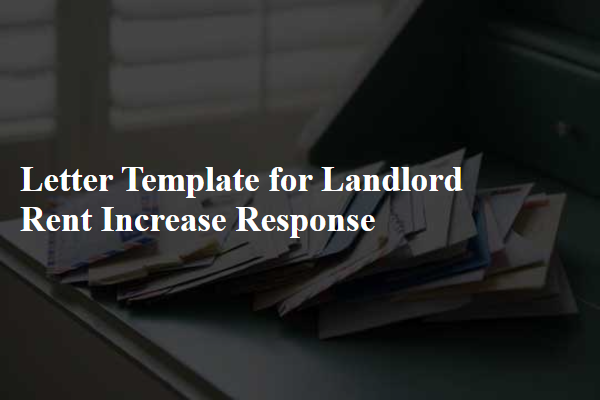
Professionalism and Respect
Subject: Response to Rent Increase Notice Dear [Landlord's Name], I hope this message finds you well. I am writing to acknowledge the recent notice regarding the rent increase for my unit located at [Property Address]. While I appreciate the challenges of managing a rental property, I would like to discuss this adjustment further. Given current market conditions and local rental trends, I have some concerns about the proposed increase from [$Current Rent] to [$New Rent]. The cost of living in [City/Neighborhood] has been significant, and my financial situation is a consideration during this discussion. I value my tenancy and the relationship we have maintained over the years. A mutual understanding regarding rental rates is important. If possible, I would appreciate the opportunity to negotiate this matter further or explore potential alternatives that will benefit both parties. Thank you for your attention to this matter. I look forward to your understanding and a productive conversation. Best regards, [Your Name] [Your Contact Information]
Reference to Lease Agreement
In response to the recent communication regarding the rent increase, it is essential to examine the Lease Agreement established on June 1, 2022, which outlines the rental obligations and conditions. Specifically, Section 3 of the Lease Agreement stipulates that any rental adjustments must adhere to a prior notice period of at least 60 days and be justified by market analysis or property improvements. The current rental rate of $1,200 per month, set in accordance with local market conditions, is subject to review under the terms stated in our specific agreement. Furthermore, local rent control regulations, particularly those applicable in San Francisco, California, may impose additional limitations on permissible rent increases, ensuring an equitable agreement for both parties. A careful review of these components will facilitate a more constructive discussion regarding the proposed adjustments.
Justification for Rent Increase
Rising property maintenance costs contribute significantly to increased rental prices, as property management expenses, such as landscaping, plumbing repairs, and routine maintenance, have risen by approximately 15% over the past year. Local inflation rates, hovering around 5.4% in many urban areas, exacerbate the financial strain, prompting landlords to adjust rents to keep pace with market trends. Additionally, the demand for rental properties has surged in popular neighborhoods, like Brooklyn and San Francisco, resulting in vacancy rates dropping to below 3%. In response to these economic pressures, many landlords have reassessed rental agreements to ensure sustainability and continued investment in property improvements, aiming to enhance tenant satisfaction in the long term.
Request for Negotiation or Compromise
Residential tenants receiving a rent increase notification, particularly in urban centers like New York City, often face significant financial pressure due to rising housing costs and economic factors. A common response involves seeking negotiation opportunities around the new rent terms, emphasizing tenant rights under the Rent Stabilization Law, which governs many such agreements. Tenants can provide specific financial details, including their current income (e.g., $60,000 annually) and local market rates (averaging $2,800 per month for similar apartments in the neighborhood), to justify the request for compromise. Fostering a collaborative dialogue could lead to a more manageable increase, ensuring continued occupancy and maintaining landlord-tenant relationships amidst fluctuating market conditions.
Timely Response and Contact Information
Receiving notification about a rent increase from a landlord can evoke various reactions in tenants. A timely response is crucial, ideally within 30 days, to address concerns and negotiate terms effectively. Including contact information, such as an email or phone number, aids in facilitating direct communication. Essential details like the apartment address (e.g., 123 Maple Street), the proposed new rent amount, and the effective date of the increase provide clarity. A respectful tone ensures a constructive dialogue, allowing for the possibility of discussing alternative arrangements or expressing dissatisfaction with the proposed increase. Clear communication channels contribute to maintaining a positive landlord-tenant relationship.
Letter Template For Landlord Rent Increase Response Samples
Letter template of inquiry regarding landlord's rent raise justification.
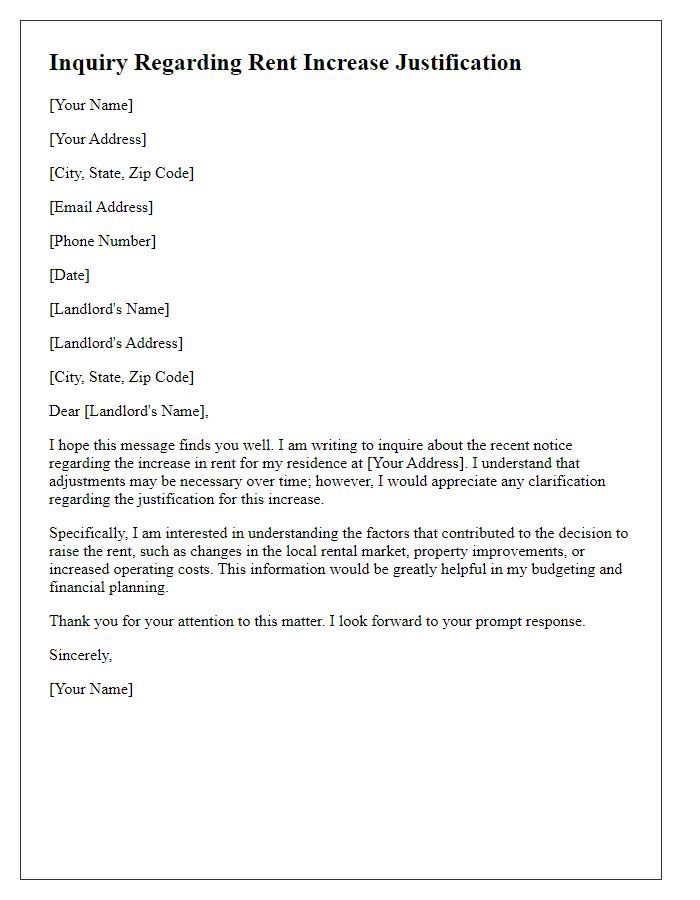
Letter template of request for reconsideration of rent increase by landlord.
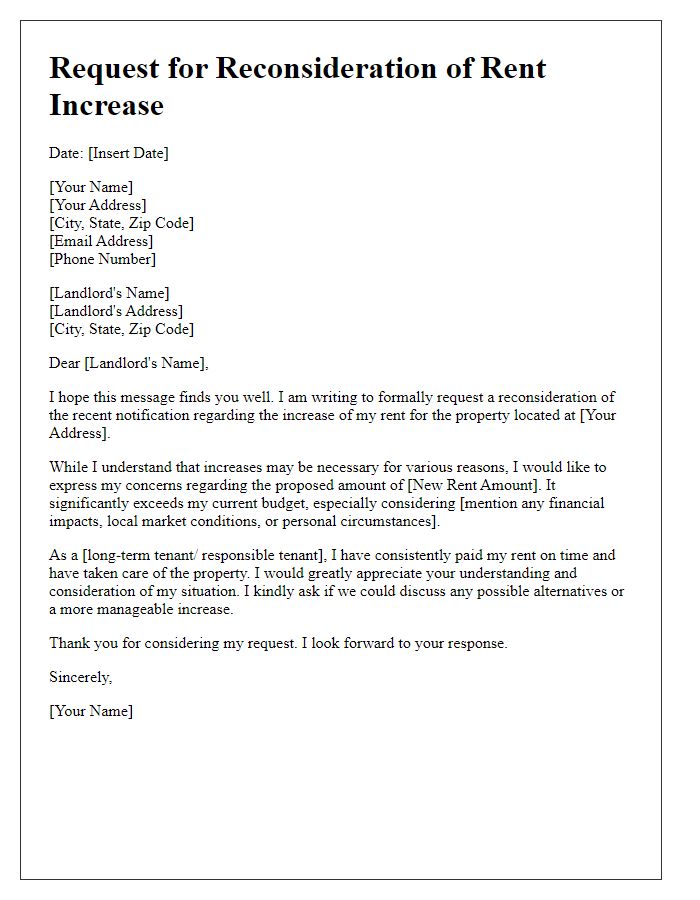

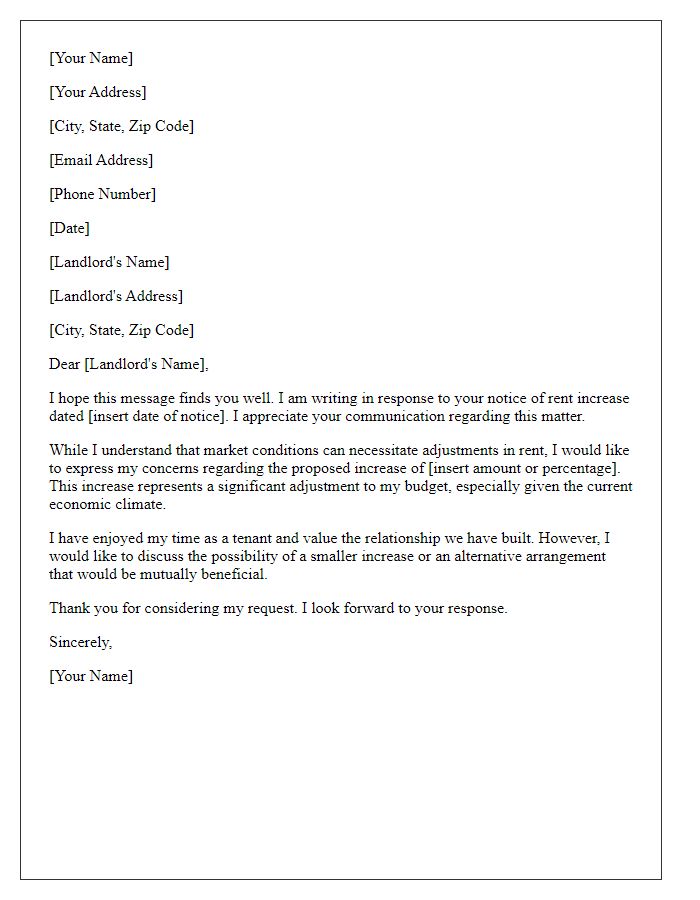
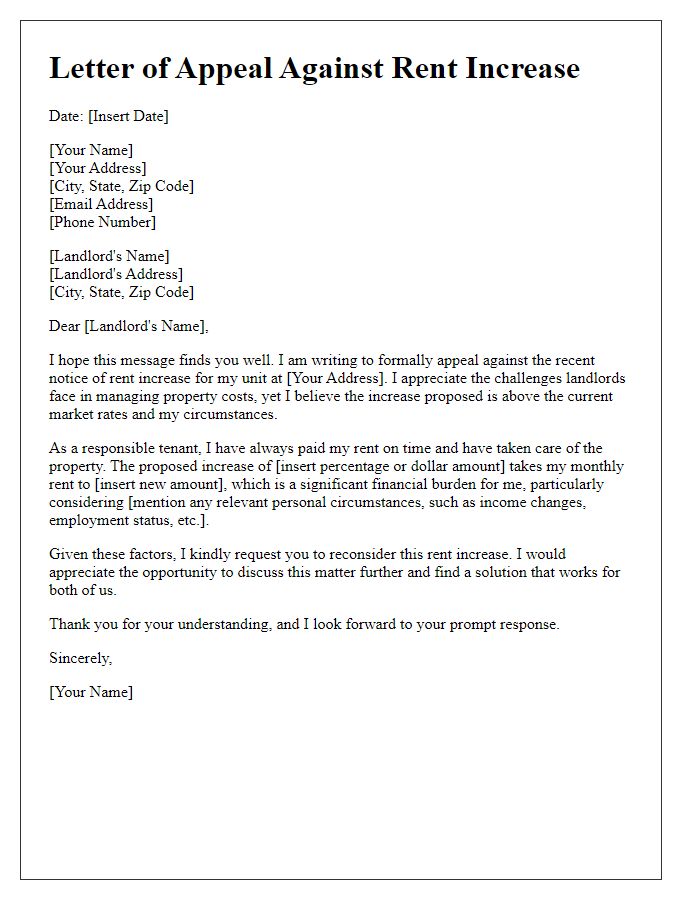
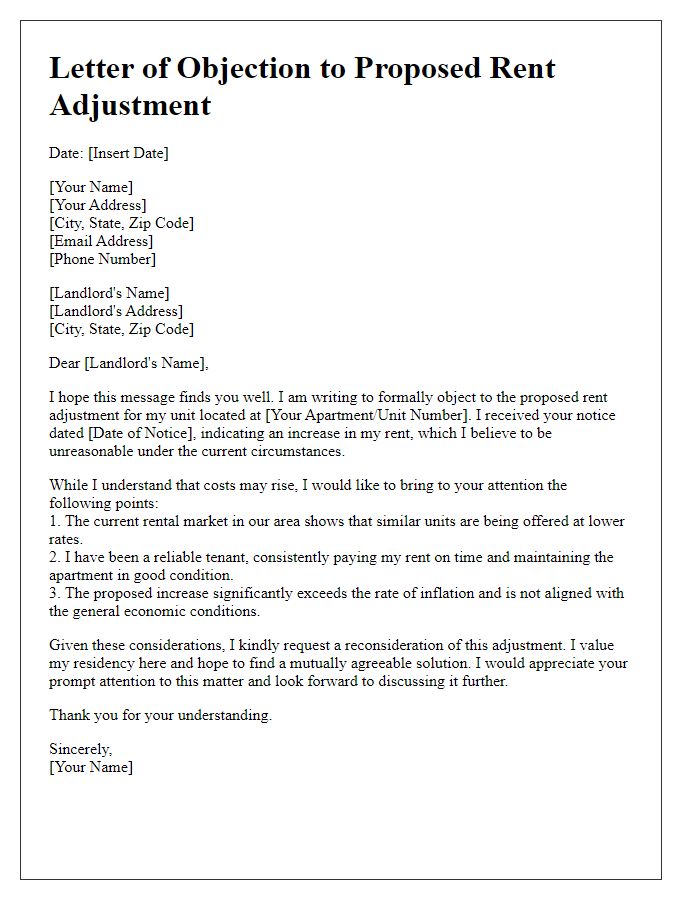
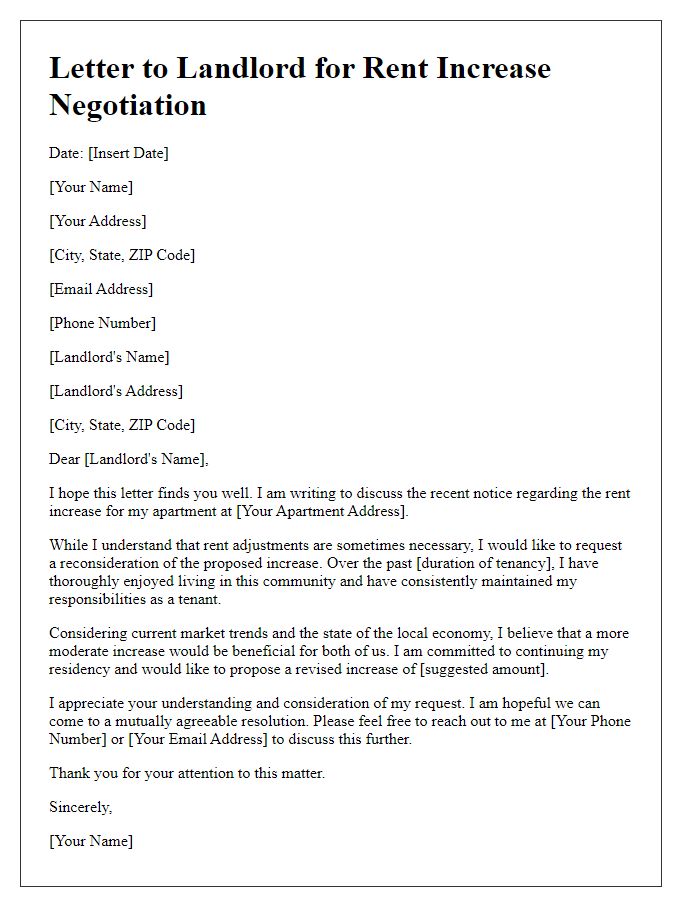
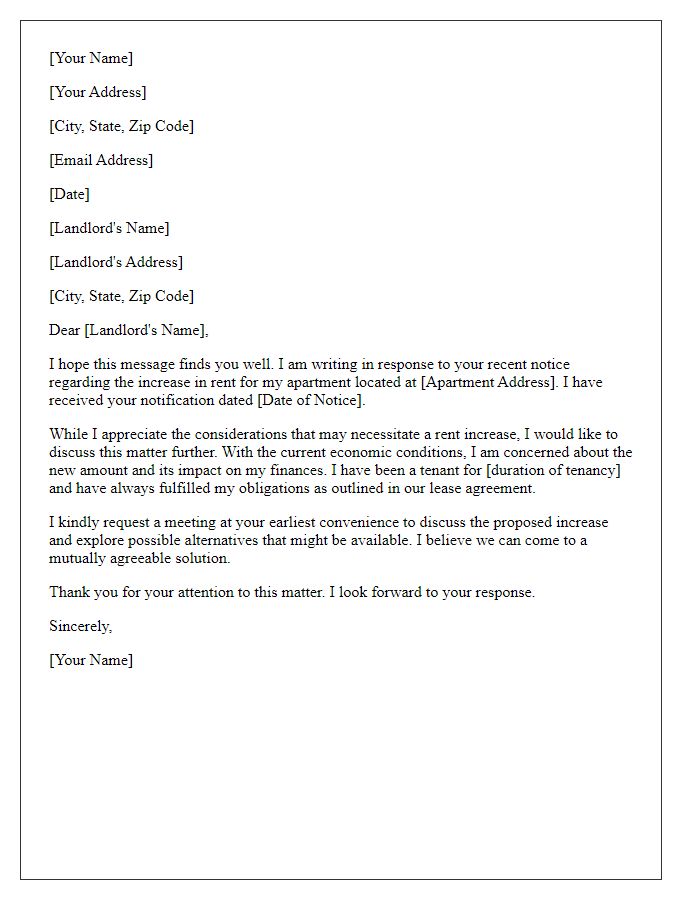
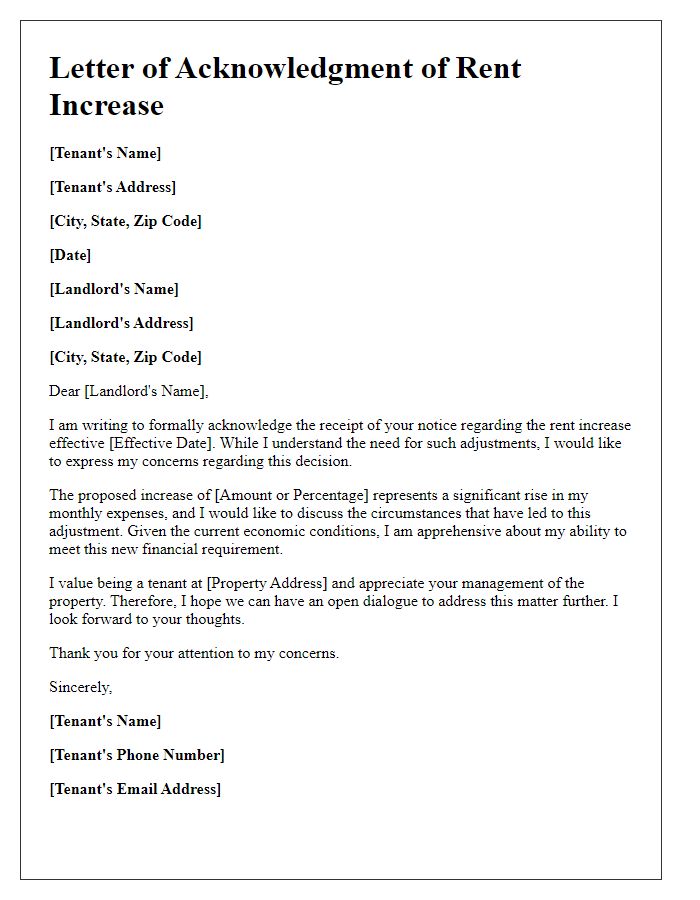
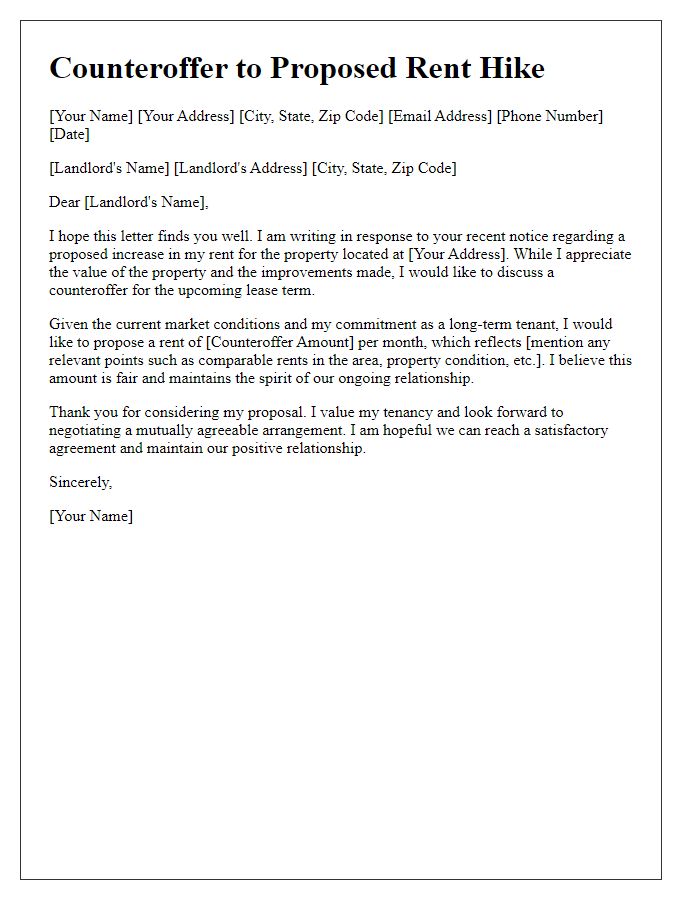
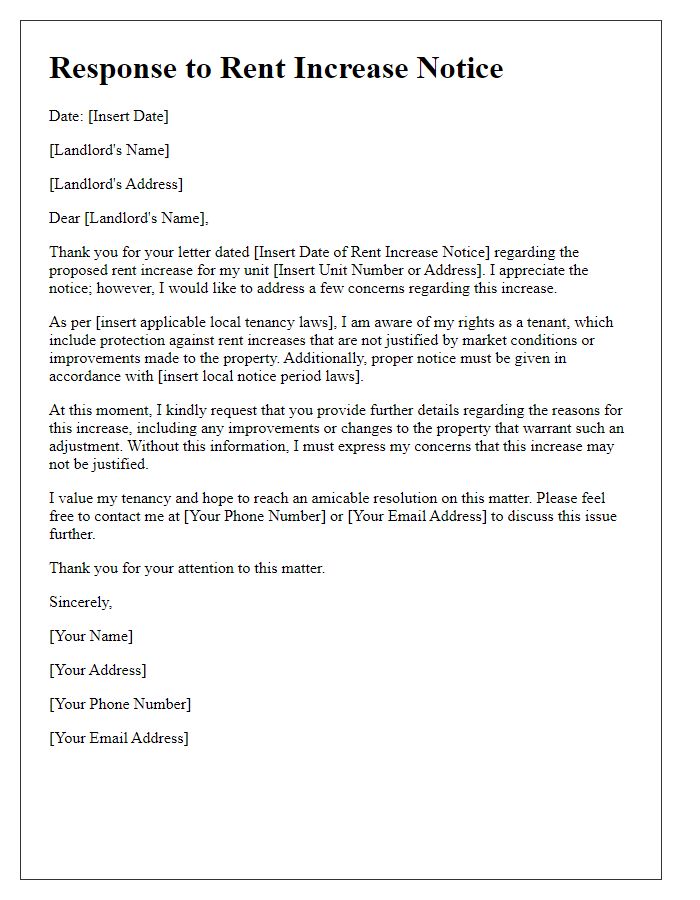


Comments